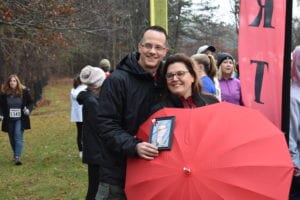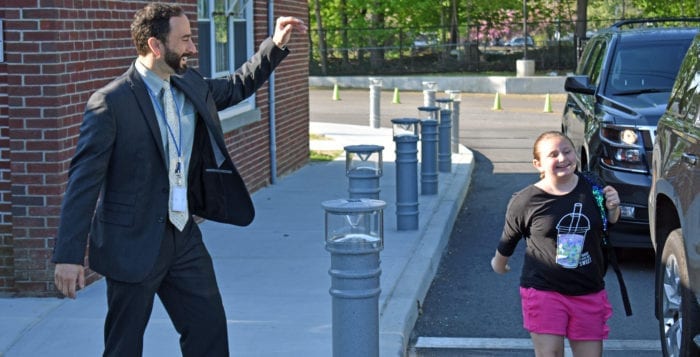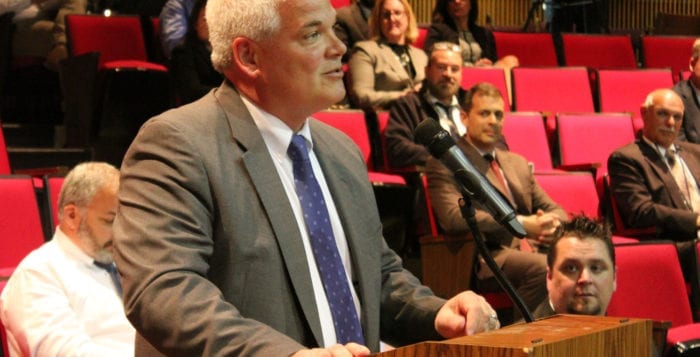Sometimes it takes a village – sometimes it takes a whole district.
Throughout the COVID-19 pandemic, workers in North Shore school districts had to buckle down and create a new game plan from early on. March saw the closure of schools and the introduction of distance learning. September brought a return to in-person, but a host of new issues.
With constantly changing guidelines, they had to reconstruct their plans. Superintendents had to lead their districts to continue learning and to keep their students safe, while teachers, librarians, custodians, librarians and so many more worked and sacrificed to do the best they could, often exceeding what was expected.
Gerard Poole, superintendent of Shoreham-Wading River school district, said it was a collaborative effort.
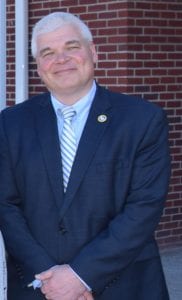
“So much had to happen for all of this had to be in place for the start of the school year,” he said. “Administrators who didn’t take any time off this summer, to teachers who had to move around classrooms. There were a lot of things that had to be done.”
One of those things that were applauded by community members was the reopening of the vacant Briarcliff Elementary School in Shoreham, which helped increase social distancing and lower the class sizes. Poole said that in June, after they learned the 6-foot requirement between students and their desks was going to be in place, by opening up the formerly closed school they could have every student in five days a week.
But the superintendent stressed they couldn’t have done it alone. The school board was instrumental in making this happen, maintenance workers helped move supplies and nurses were there early on ready to work.
“It was an easy academic decision to make, but equally as important socially and emotionally,” he said. “This year seems now like a major win.”
And while SWR had to implement a plan to reopen a closed school, Cheryl Pedisich, superintendent of Three Village school district, said early in the spring the district formed a committee that would look at the narrative, and implement a school opening plan with the ultimate goal to go back to school, as normal, five days a week.
“The issue of health and safety was most important,” she said.
Pedisich said they initially developed a hybrid model, but the more she and her colleagues discussed it, they became concerned of the lack of continuity, also the mental, emotional and social impacts being on a screen would have on students.
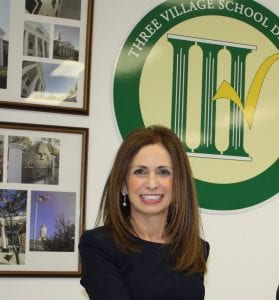
“We wanted to bring our students back to school,” she said. “What we experienced during the spring were a lot of students’ mental health [issues]. The children felt very isolated — it was hard to connect. There was a lot of frustration in terms in the remote learning.”
By creating an education plan early on that opened the school up to five days a week head on, the district was able to hire more staff, and prepare for socially distanced learning.
“Even though they’re wearing masks, they’re happy to be there,” Pedisich said. “We’ve had cases like anyone else, but no more cases than districts that went hybrid.”
And schools that run independently also had to figure out how to cope with these unprecedented times, including Sunshine Prevention Center in Port Jefferson Station, a nonprofit that offers an alternative education program. The CEO, Carol Carter, said they had to work with staff to handle the change.
“We provided support to the staff and a strong leadership to the staff, so the teachers felt comfortable,” she said. “Then we did training on it. They had to learn along with us as we’re learning — they’re learning how to run classes online, how to put homework online and how to communicate with the students.”
While their school has a very small staff, they continued to help kids who were struggling at home.
“We would try and reach out to students and their families almost daily,” Holly Colomba, an English and science teacher at Sunshine said. “We were trying to check in, whether it’s with their mental health or educationally, just trying to keep in contact with them and let them know we’re still here — and that we were there to help them.”
And technology was huge in every district as the COVID pandemic was navigated. Joe Coniglione, assistant superintendent at Comsewogue School District, said the district wouldn’t be running smoothly without the help and initiative from the technology department.
“These guys made it possible with going remote and doing hybrid instruction,” he said. “They orchestrated training every teacher in the district and worked around the clock to make sure kids were learning. They went way above and beyond to help us operate in time.”

Don Heberer, Comsewogue district administrator for instructional technology, said he remembered the day well. It was March 13 and he was at John F. Kennedy Middle School, scrambling and making sure every student had a device to use at home. They delivered about 300 Chromebooks to families who didn’t have devices.
“I relied on my staff,” he said. “And our number one focus was how can we make learning possible.”
Heberer and his colleagues — Jan Condon, David Rebori and Frank Franzese — made sure that communication was getting out to members of the community, students and their families. Teachers were constantly being trained and students were able to access their work online.
“We were in the middle of a crisis,” he said. “We have to remember people are losing their jobs, their lives, their entire livelihood. It’s important to be empathetic to that and doing everything we can to make it a little easier — students, teachers, parents and the community.”
He said they kept people in the loop using the districts app, which has roughly 7,000 people logged in.
School librarians, too, had to change shape to keep kids reading.
Monica DiGiovanni, a librarian at Joseph A. Edgar Intermediate School in Rocky Point, said she and her colleagues focused this year on teaching students Sora, a reading app by OverDrive.
She said that Sora is an electronic version of their library, so kids would still be able to access books and read them on their Chromebooks.
Along with DiGiovanni, Rocky Point librarians Jessica Sciarrone, Catherine O’Connell and Bettina Tripp have been responsible teaching students how to use the system since the school library cannot be used due to the pandemic.
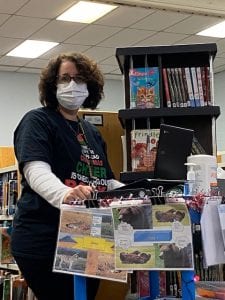
Photo from DiGiovanni
“As librarians, we were like, ‘Oh gosh we can’t give them books?’ That was a huge issue,” DiGiovanni said.
After researching platforms to get them e-books, all four librarians decided to devote most of their library budget to the electronic reads.
“There’s so much that books provide that children get out of it,” DiGiovanni said. “They enjoy going to other places — fantasy worlds — so they can get that now with e-books.”
She said they’re definitely utilizing the service.
“Some kids prefer them,” she added. “They like to be able to finish a book and go onto something new right away.”
At Port Jefferson high school, the Varsity Club is traditionally a group that inspires a sense of community involvement in student-athletes. Teachers and advisers to the club — Jesse Rosen and Deirdre Filippi — said that what their students usually do to get involved with the community was altered or canceled because of the pandemic.
“As a result, some new events were created by our students and we found alternate ways of giving back to the community,” Filippi said. “We were especially impressed by the fact that our students saw this phase of their life as an opportunity, rather than an obstacle.”
Along with reading programs paired with the elementary school, Edna Louise Spear, and hanging of flags on 9/11 and Veterans Day, the club hosted a Halloween trick-or-treat drive-thru event at the elementary school.
“Oftentimes, when we feel somewhat helpless about our own situations, the best thing we can do is help those around us,” Filippi said. “This event was a perfect representation of our club´s mentality.”
A good part of the community came to the school to experience a unique and safe trick-or-treating experience.
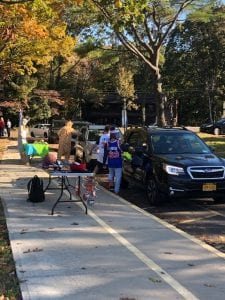
“The idea was simple, the communal impact was overwhelming,” she said. “This speaks to what we try to achieve as educators. Our students recognized an opportunity within our community and they developed and executed a plan perfectly.”
The impact the club and its students made was overwhelming for Rosen and Filippi.
“As educators, the actions of our students often inspire us,” Filippi said. “It is rewarding to see our students take the initiative and do whatever they can to put a smile on the face of their fellow students and community members.”



